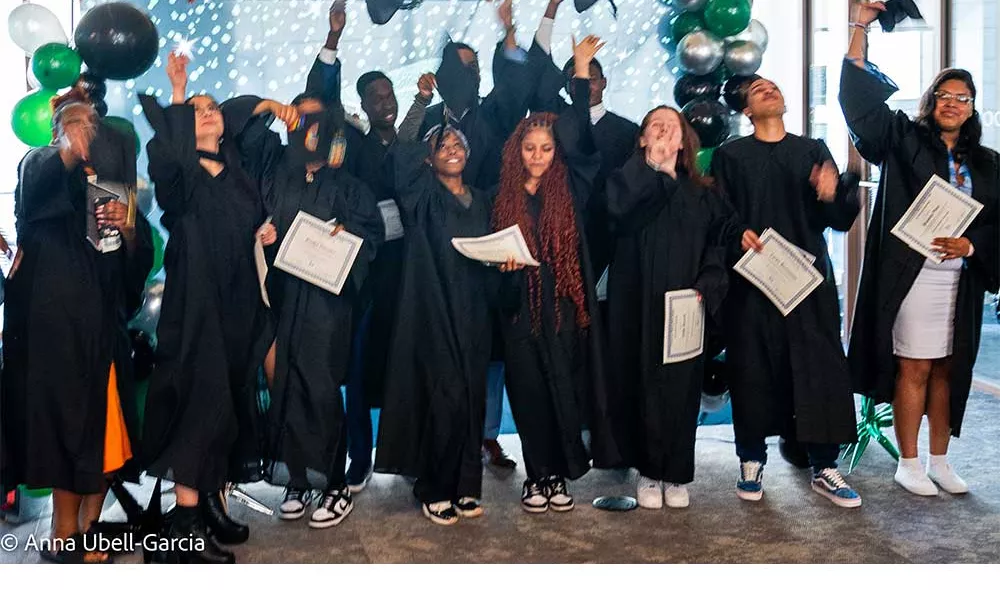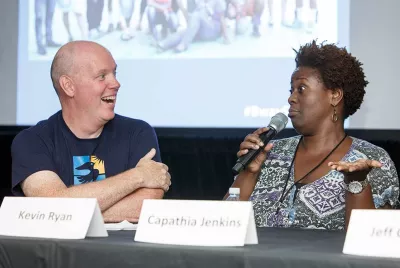From High School to the Rest of Your Life

The journey to adulthood is challenging for any young person, but for students facing homelessness, the path is often fraught with additional hurdles. Covenant Home plays a pivotal role in providing stability and support as young adults transition into college life, careers, and independent living.
Graduation, whether from a high school, a high school equivalency program, or a vocational training program, is a milestone some youth feel, when they first come to Covenant Home, is beyond their reach. Yet our houses ring with stories of our young people’s success.
Take Elijah, for example, at Covenant Home New Orleans. Despite his struggles with homelessness, Elijah graduated valedictorian of his high school. The stability and relentless support provided by CHNO was crucial. Elijah focused on his studies without the constant worry of where he would sleep or find his next meal. He felt empowered to excel, and upon graduation, he secured a place at Xavier University, where he’ll pursue a career in 3D modeling and comic design.
At Covenant Home New York, 30 young residents, including four recent immigrant youth, achieved their high school diploma or equivalency this spring. “It was the largest graduation pool we’ve had in my eight years of service at CHNY,” says Lyndell Pittman, senior vice president of support services, including CovWorks, CHNY’s education and career services program.
Covenant Home recognizes the importance of education, and at CHNY, Lyndell says, “We have programs and practices in place to support the youth. We have constant communication among residential, youth development, and CovWorks staff to monitor their progress and be attentive to any challenges they face.”
‘Covenant Home Pushed Me to Believe in Myself’
For Moongélina, one of this year’s graduates at CHNY, that kind of attention and relentless support was invaluable. “The support I got from my tutor, my teacher, and the Covenant Home staff just gave me the motivation to do it,” she says, “because I don’t think I ever really had much faith in myself.
“Being around people from Covenant Home has changed a lot for me. It’s pushed me onto this path I’m on right now, pushed me into believing in myself, believing I could go to school, and believing I could do my GED,” she says.
Not only did Moongélina complete her GED studies, she received the program’s Perseverance Award “for demonstrating commitment, pride, and a positive attitude” while working toward her high school equivalency diploma during a personally difficult and challenging time in her life.
Like Elijah, Moongélina is ready to start college in the fall. She plans to study physiology STEM, and says, “I’d like to start my own program someday and give back to Covenant Home for all they’ve done for me.”
The accomplishment of all our Covenant Home graduates this spring can’t be overstated. They managed to complete and pass their classes while working to overcome the trauma of homelessness, with all its physical, mental, and emotional impacts. Having a safe place to sleep; nourishing, regular meals; access to mental health care, and people interested enough to ask them how their day went all made a difference in their pursuit of success.
After the Tassel Has Turned
But for students overcoming homelessness, the challenges don’t end when they move their tassels from one side of the mortarboard to the other.
For one thing, youth often have nowhere to go during semester breaks or summers. This is where Covenant Home’s continued support is invaluable. We provide a safety net, a place our youth can return to, where they can regroup, recharge, and prepare for the next semester or the next phase of their journey.
Elijah plans to return to CHNO during these breaks. The stability and support he knows he’ll find there are crucial for him, he says, as they ensure safety and access to resources that will help him continue his education and work toward his career goals. For Elijah, Covenant Home is an enduring source of hope and security as he navigates his path to success.
Doubling Down on Support Following Graduation
CHNY education specialists Jennifer Jarrell and Rhonda Whitley note that after the diplomas have been handed out, staff double down on their support for graduates to help them stay focused and confident while they navigate a maze of critical administrative and life steps to get them to their first day of college or a new career. “Our next step is to reach out to each one and help them, whatever their plan is,” Rhonda says.
“It’s really tough to be outside of your home, without the support of your family,” Jennifer says. CHNY staff step into the space vacated by a parent to hold a youth’s hand while they fill out daunting and alien paperwork, apply for financial aid, or register for classes.
Then there’s the dorm. “What does it mean if our youth don’t have the expected things?” Jennifer says. CHNY provides an initial care package, so our first-year students can feel they’re starting on an even playing field with their classmates.
“I’ve seen youth not go to college over this stuff right here,” Jennifer says. “A few things for their dorm, help reading over this documentation. Who do they speak to about a question they have? Who is the bursar? What is a bursar?” When Rhonda tried to explain the role of the bursar to a young person, the youth became flustered and said, “See? That’s why I don’t want to go to school; I don’t know what a bursar is.”
‘You’re Not Alone’
“I think the best way we can help them,” Rhonda says, “is to let them know they’re not alone, that they always have support regardless of where they are on their journey. They can always pick up a phone, shoot us an email, and someone will always answer and help them.”
“And when they have the support from us in every type of way,” Jennifer adds, “then they can make decisions that are just right for them.”
Rhonda says she cried through most of the graduation ceremony at CHNY this spring. “Not only because I see the pride that they had that they were able to accomplish this — because it wasn’t easy — but because they’re now optimistic and hopeful about what they can accomplish. They’re starting to see themselves long term.”
You might also like...
Shelter Is Only the Beginning
From crisis to care: Find out what it's like when a young person enters our doors.


